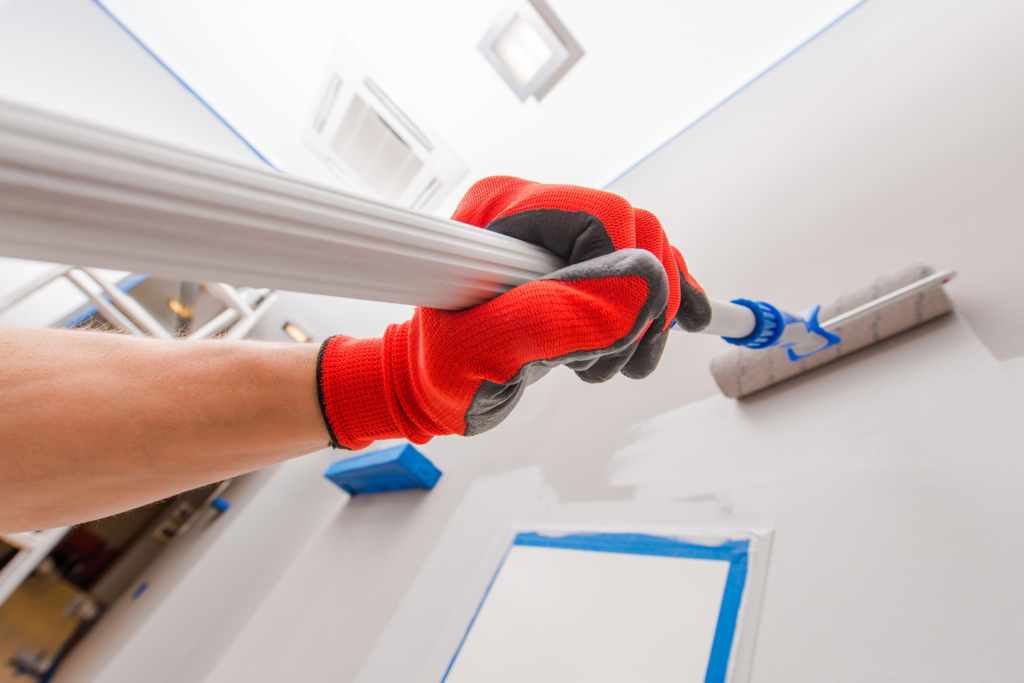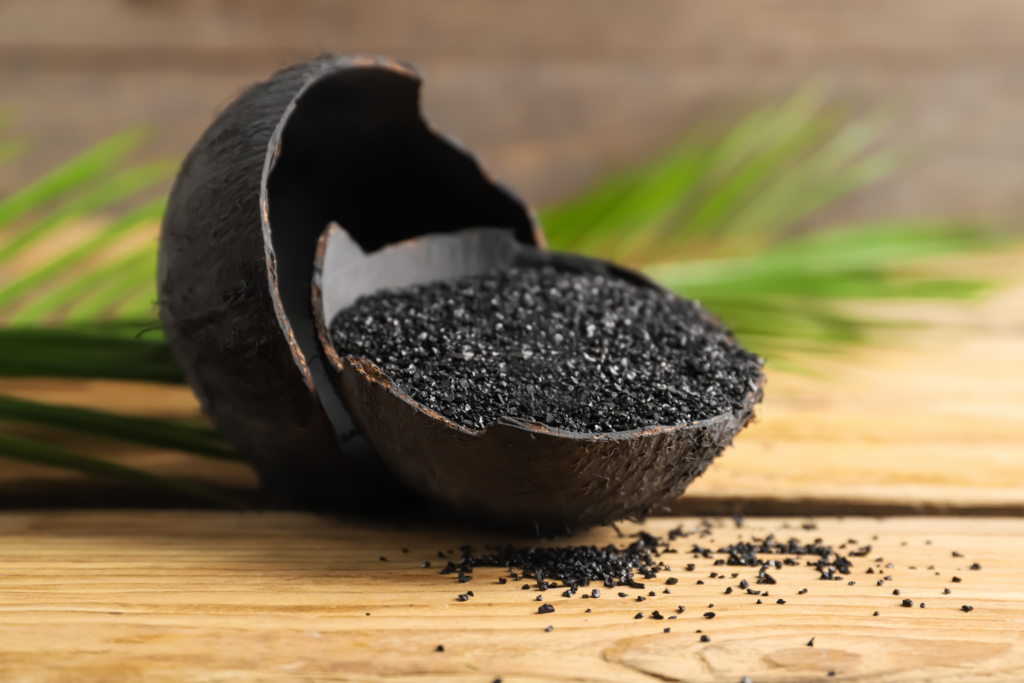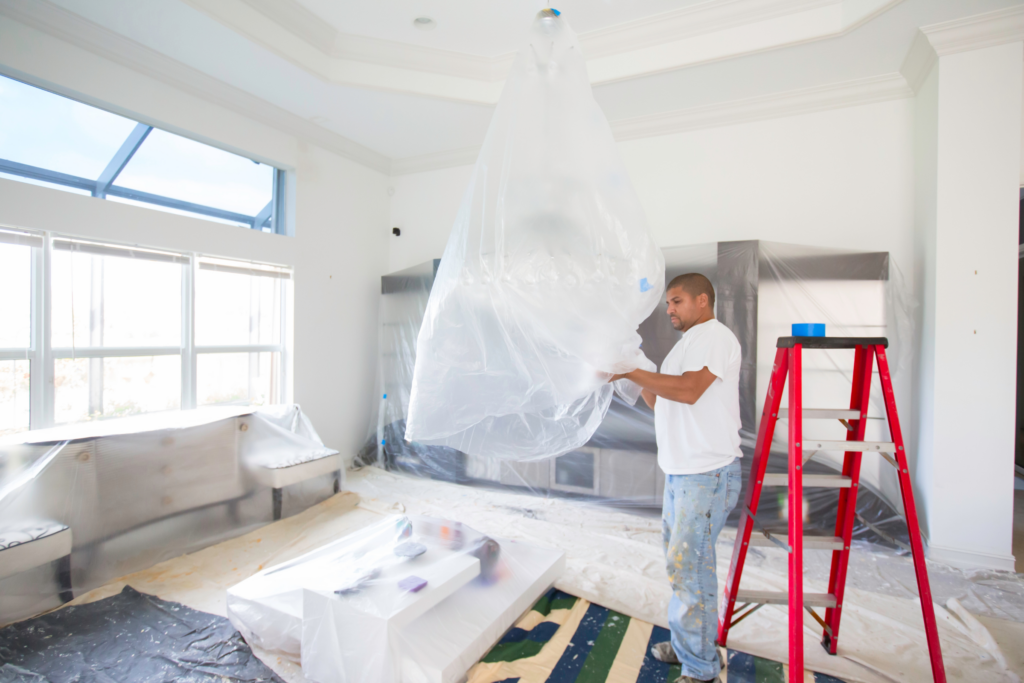Get Rid of New Paint Smell: How Long Does It Last in a Room?
So, I recently decided to give my bedroom a fresh coat of paint. I was stoked to see the new color on my walls, but boy, did I not anticipate the smell of paint fumes that came with it. I mean, it was like sleeping in a chemical factory. I started wondering if I’d ever be able to breathe fresh air in my room again!
After some digging, I found out that the length of time it takes for paint smell to go away depends on a bunch of factors. Like, did you know that oil-based paint takes longer to dry and has a stronger smell than water-based paint? And those volatile organic compounds (VOCs) in paint can really mess with your health. Yikes.
But fear not, my friends! There are ways to combat the stench and improve your indoor air quality. Crack open those windows, turn on a fan, and let some fresh air in. You can also use activated charcoal, baking soda, or vinegar to absorb the odor. And if you want to avoid feeling like you’re sleeping in a gas chamber, wait until the paint is fully dry and the smell has disappeared before catching some Z’s. Trust me, your nose will thank you.
Why does paint smell in the first place?
A strong paint smell is caused by volatile organic compounds (VOCs) that are released as the paint dries. VOCs are a group of chemicals that easily vaporize and can be harmful to human health and the environment.

Volatile organic compounds (VOCs)
VOCs are carbon-based molecules that evaporate at room temperature. They are found in many household products, including paint, cleaning supplies, and air fresheners. VOCs can cause eye, nose, and throat irritation, headaches, nausea, and dizziness. Long-term exposure to high levels of VOCs can lead to more serious health problems, such as cancer and liver damage.
Paints that contain higher levels of VOCs have a stronger smell and are more harmful to human health and the environment. However, many paint manufacturers have started to produce low-VOC or zero-VOC paints that are safer and more environmentally friendly. These paints have lower levels of VOCs and are less likely to cause health problems or emit strong odors.
To reduce the amount of VOCs released into the air during painting, it’s important to choose low-VOC or zero-VOC paints, use proper ventilation, and follow the manufacturer’s instructions. It’s also important to avoid painting on humid or rainy days, as high humidity can slow down the drying process and increase the release of VOCs.
Overall, understanding the causes of paint smell and the harmful effects of VOCs can help you make informed decisions when choosing paint and painting your home.
How long does paint smell last?
As someone who has painted several rooms in my home, I know that the smell of fresh paint can be overwhelming and unpleasant. The good news is that the smell will eventually dissipate, but how long it takes depends on several factors.
Factors that affect drying time
The drying process of paint can be affected by several factors, including:
| Factors that affect paint’s drying time | What you need to know! |
|---|---|
| Type of paint | Oil-based paints take longer to dry than water-based paints. |
| Humidity | High humidity can slow down the drying process. |
| Temperature | Cooler temperatures can also slow down the drying process. |
| Ventilation | Proper ventilation can help speed up the drying process. |
Tips for drying paint faster
| Tips for drying paint faster | Why it works! |
|---|---|
| Open windows and doors | Proper ventilation is key to getting rid of the smell. Opening windows and doors can help circulate fresh air and speed up the process. |
| Use fans | Fans can also help circulate air and speed up the drying process. |
| Charcoal | Activated charcoal can absorb odors and is a natural way to get rid of the smell. Place a few bowls of activated charcoal around the room to help absorb the fumes. |
| Vinegar | Vinegar is another natural way to get rid of the smell. Mix equal parts vinegar and water and place it in a spray bottle. Spray the solution around the room to help neutralize the odor. |
Other things to consider about fresh paint smell
| Other things to consider | Why they are important! |
|---|---|
| Drying Time | Fresh paint can take anywhere from a few hours to several days to dry completely. |
| Paint Fumes | During the drying process, the paint will emit fumes that can cause headaches, nausea, and other symptoms. The intensity of the smell can vary depending on the factors mentioned above. |
| Lingering Smell | Even after the paint has dried, the smell can still linger for several days or even weeks. |
| Natural Odor Absorbers | Using natural odor absorbers can help speed up the process and make your home smell fresh again. |
How to get rid of the paint smell or spray paint fumes
When you’ve just painted a room, the last thing you want is to be overwhelmed by the smell of fresh paint. Luckily, there are several ways to get rid of paint smell that are both effective and safe. Here are some methods that I have found to be useful:
- Ventilation
- Air purifiers
- Activated charcoal
- Baking soda
- Diatomaceous earth
- Onions
- Vinegar
- Lemon water
Ventilation
One of the simplest and most effective ways to get rid of paint smell is to open up windows and doors to let fresh air in. You can also use fans to circulate the air and help the paint dry faster.
This method is particularly effective if you have access to a cross-breeze, which will help to move the air through the room more quickly.

Air purifiers
Another way to get rid of paint smell is to use an air purifier. These devices work by removing airborne particles and pollutants from the air, including paint fumes.
There are many different types of air purifiers available, so be sure to choose one that is appropriate for the size of your room.
Activated charcoal
Activated charcoal is a natural odor absorber that can help to remove paint smell from the air. You can place small bowls of activated charcoal around the room to absorb the fumes.
Be sure to replace the charcoal every few days until the smell has dissipated.

Baking soda
Baking soda is another natural odor absorber that can help to remove paint smell from the air. You can mix baking soda with water to create a paste and apply it to the walls and ceiling.
Let the paste dry for a few hours, then wipe it off with a damp cloth. You can also place bowls of baking soda around the room to absorb the fumes.
Diatomaceous earth
Diatomaceous earth is a natural substance that can help to absorb paint fumes. You can sprinkle diatomaceous earth around the room and let it sit for a few hours before vacuuming it up.
Be sure to wear a mask when using diatomaceous earth, as it can be irritating to the lungs.
Onions
Believe it or not, onions can also help to remove paint smell from the air. Cut an onion in half and place it in a bowl of water. Leave the bowl in the room overnight to absorb the fumes. Be sure to discard the onion and water in the morning.
Vinegar
Vinegar is a natural deodorizer that can help to remove paint smell from the air. You can place bowls of vinegar around the room to absorb the fumes.
Be sure to replace the vinegar every few days until the smell has dissipated.
Lemon Water
Lemon water is another natural deodorizer that can help to remove the paint smell from the air. You can mix lemon juice with water and place it in bowls around the room to absorb the fumes. Be sure to replace the lemon water every few days until the smell has dissipated.
Overall, there are many effective ways to get rid of a strong paint smell. By using a combination of these methods, you can create a safe and comfortable environment in your freshly painted room.
How to minimize the smell of paint in a room
As someone who has experienced the unpleasant odor of fresh paint, I know how important it is to take steps to prevent it. Here are a few tips to help you avoid the smell of new paint:
- Choose a low-VOC paint
- Use proper ventilation
- Protect the carpet and furniture
- Use latex paint
Choose a low-VOC paint
One of the best ways to prevent the smell of fresh paint is to choose a low-VOC (volatile organic compound) paint. VOCs are chemicals that can be released into the air as the paint dries, causing the strong odor associated with new paint. Low-VOC paints contain fewer of these chemicals and are a better choice for those who are sensitive to strong odors.
Use proper ventilation
Proper ventilation is essential when painting to prevent the buildup of paint fumes. Open windows and doors to allow fresh air to circulate through the room. You can also use fans to help move the air around. If possible, consider painting outdoors or in a well-ventilated area.
Protect the carpet and furniture
New paint can easily damage carpet and furniture. To prevent this, cover your floors and furniture with drop cloths or plastic sheeting. This will protect them from any accidental spills or splatters.

Use latex paint
If you are using oil-based paint, be aware that it can take longer to dry and can produce a stronger odor than latex paint. You may need to take extra precautions, such as wearing a mask and using additional ventilation.
Let Us Know How We’re Doing!
Did this expertly prepared resource answer your question?
Do you have another question about home maintenance, home improvement projects, home appliance repair, or something else?
Get more information, send in questions and keep the discussion going by contacting the I’ll Just Fix It Myself company customer service team at at 1-800-928-1490 or Email us at [email protected]
